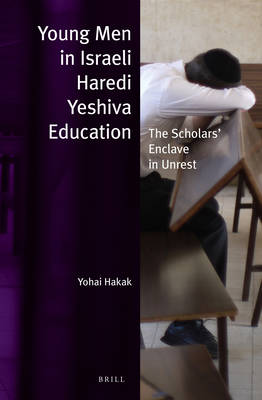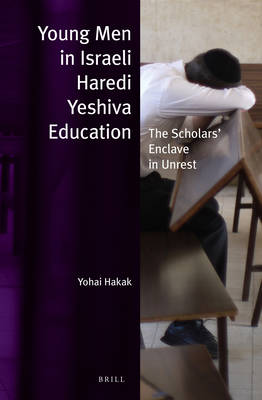
- Afhalen na 1 uur in een winkel met voorraad
- Gratis thuislevering in België vanaf € 30
- Ruim aanbod met 7 miljoen producten
- Afhalen na 1 uur in een winkel met voorraad
- Gratis thuislevering in België vanaf € 30
- Ruim aanbod met 7 miljoen producten
Zoeken
Young Men in Israeli Haredi Yeshiva Education (Paperback)
The Scholars' Enclave in Unrest
Yohai Hakak
€ 85,45
+ 170 punten
Uitvoering
Omschrijving
By looking at the case of Lithuanian yeshivas in Israel, Yohai Hakak's book explores the internal tensions and dynamics of religious orders during a stage of a relative 'loss of charisma', in which the enthusiasm of the founding generation has diminished. It is the first study to include participant observations conducted within these institutions, which are the sacred heart of this segregated and highly religious community. The book highlights the current crisis these fundamentalist institutions are going through marked by a dramatic growth in yeshiva dropout rates. It examines the new and innovative ways the rabbis are trying to respond to the crisis. As part of these attempts the rabbinical discourse portrays a unique utopian and egalitarian world governed by supernatural forces and unlimited spiritual resources and incorporates Western psychological and democratic ideas.
"Hakak's book is a great scholarly achievement." Motti Inbari, University of North Carolina at Pembroke
"In sum, the book manages to elaborate on important developments and changes in the Haredi world: The emergence of cautious deviance, questioning of old ideals, or the rise of individuality. At the same time Hakak explains how these changes inflict strains upon the social structure of the Haredi world. The book can be therefore recommended particularly to scholars dealing with the development within the Haredi society." Peter Lintl, Institut ür Politische Wissenschaft, Friedrich-Alexander-Universität Erlangen-Nürnberg
"Hakak's book is a great scholarly achievement." Motti Inbari, University of North Carolina at Pembroke
"In sum, the book manages to elaborate on important developments and changes in the Haredi world: The emergence of cautious deviance, questioning of old ideals, or the rise of individuality. At the same time Hakak explains how these changes inflict strains upon the social structure of the Haredi world. The book can be therefore recommended particularly to scholars dealing with the development within the Haredi society." Peter Lintl, Institut ür Politische Wissenschaft, Friedrich-Alexander-Universität Erlangen-Nürnberg
Specificaties
Betrokkenen
- Auteur(s):
- Uitgeverij:
Inhoud
- Aantal bladzijden:
- 200
- Taal:
- Engels
- Reeks:
- Reeksnummer:
- nr. 19
Eigenschappen
- Productcode (EAN):
- 9789004305502
- Verschijningsdatum:
- 24/07/2015
- Uitvoering:
- Paperback
- Formaat:
- Trade paperback (VS)
- Afmetingen:
- 155 mm x 235 mm
- Gewicht:
- 317 g

Alleen bij Standaard Boekhandel
+ 170 punten op je klantenkaart van Standaard Boekhandel
Beoordelingen
We publiceren alleen reviews die voldoen aan de voorwaarden voor reviews. Bekijk onze voorwaarden voor reviews.











